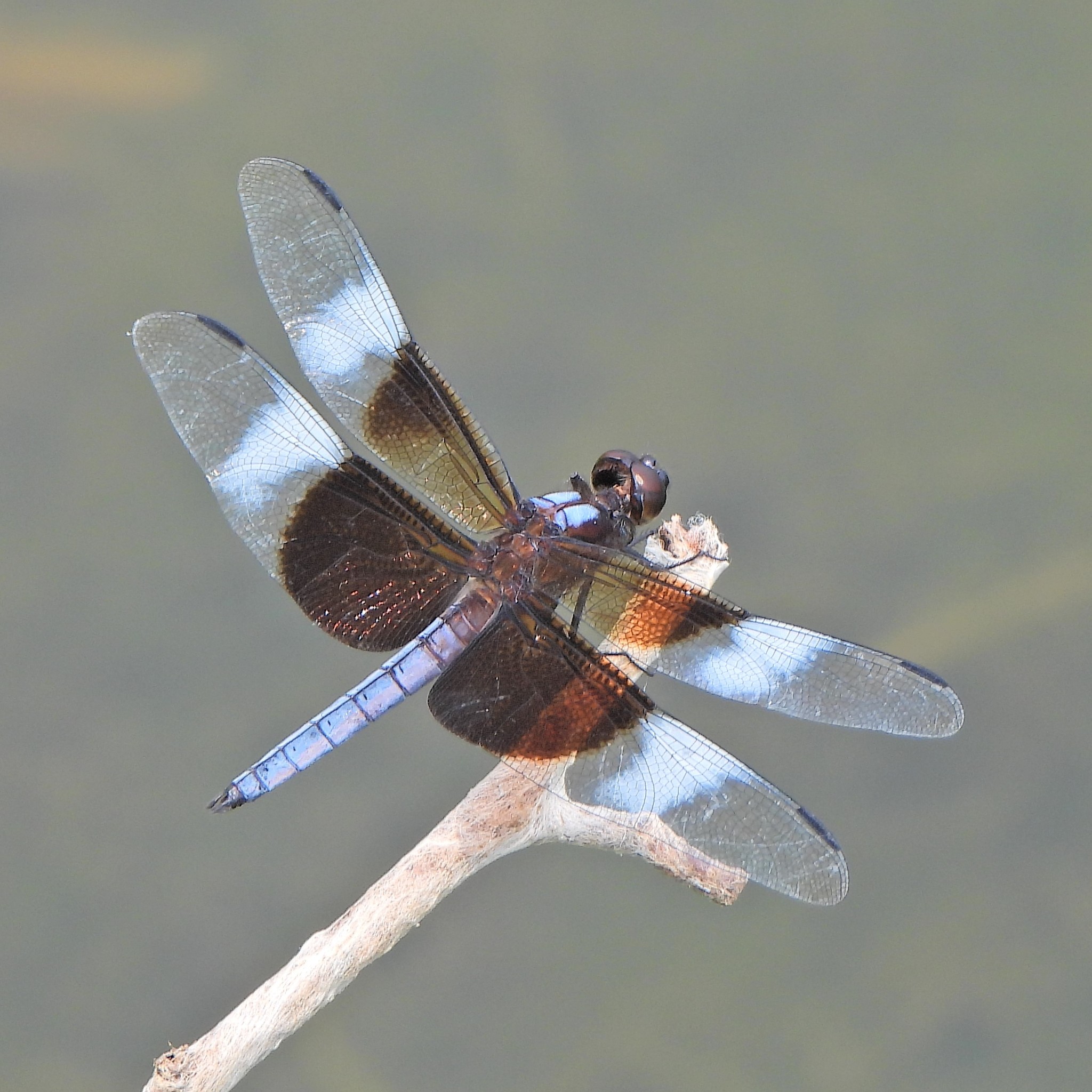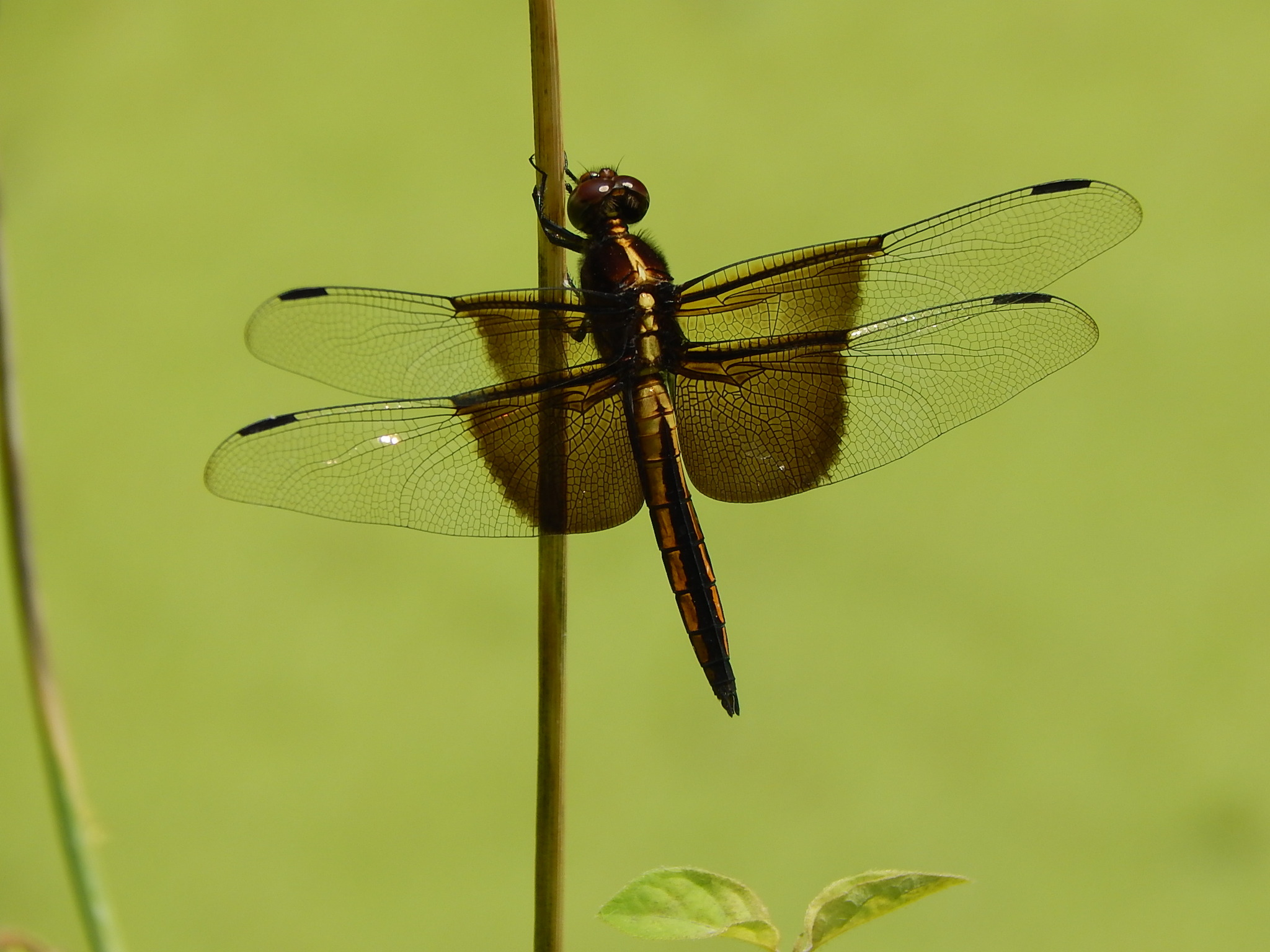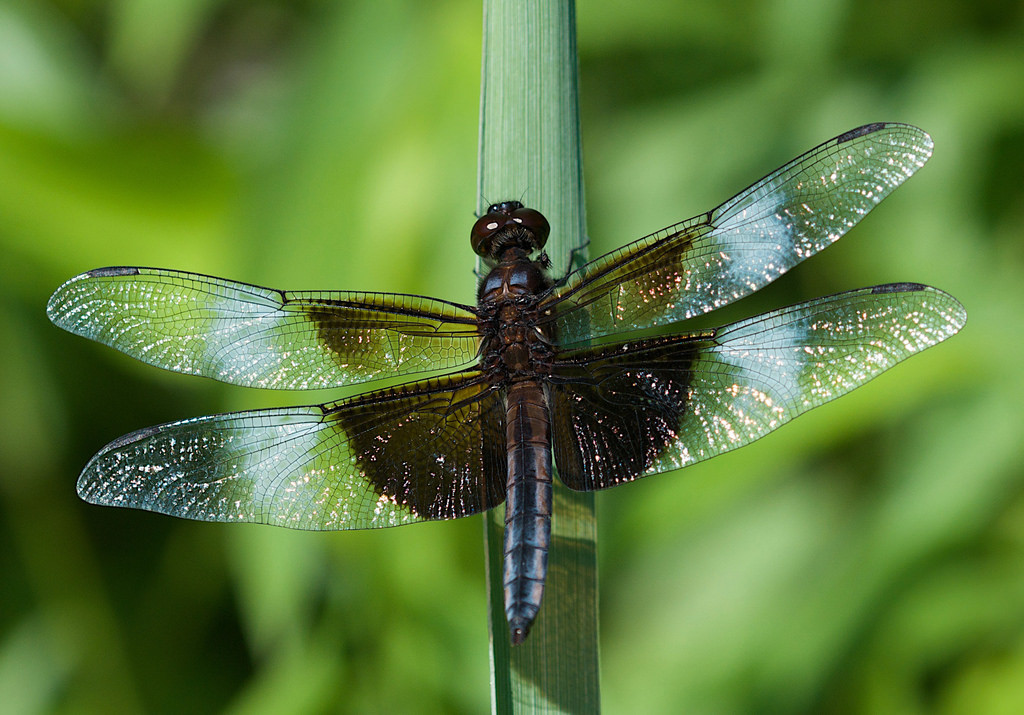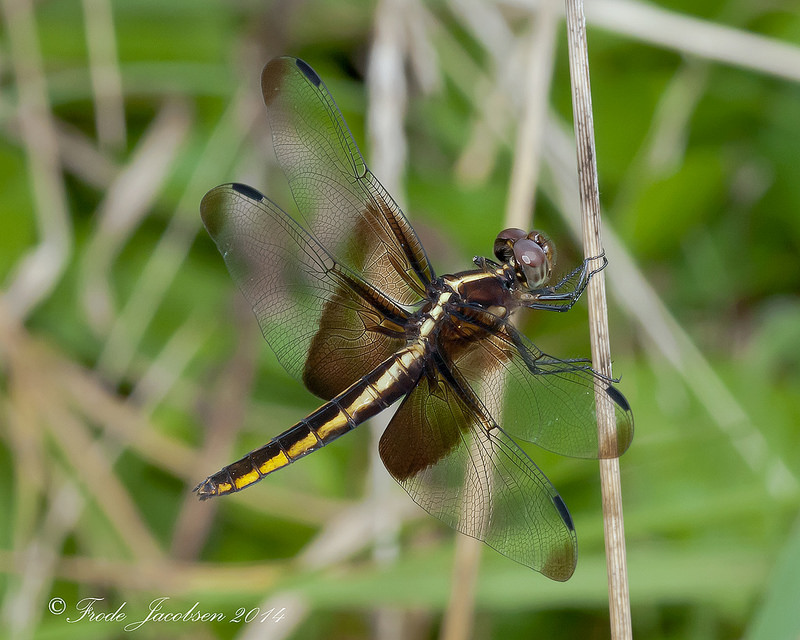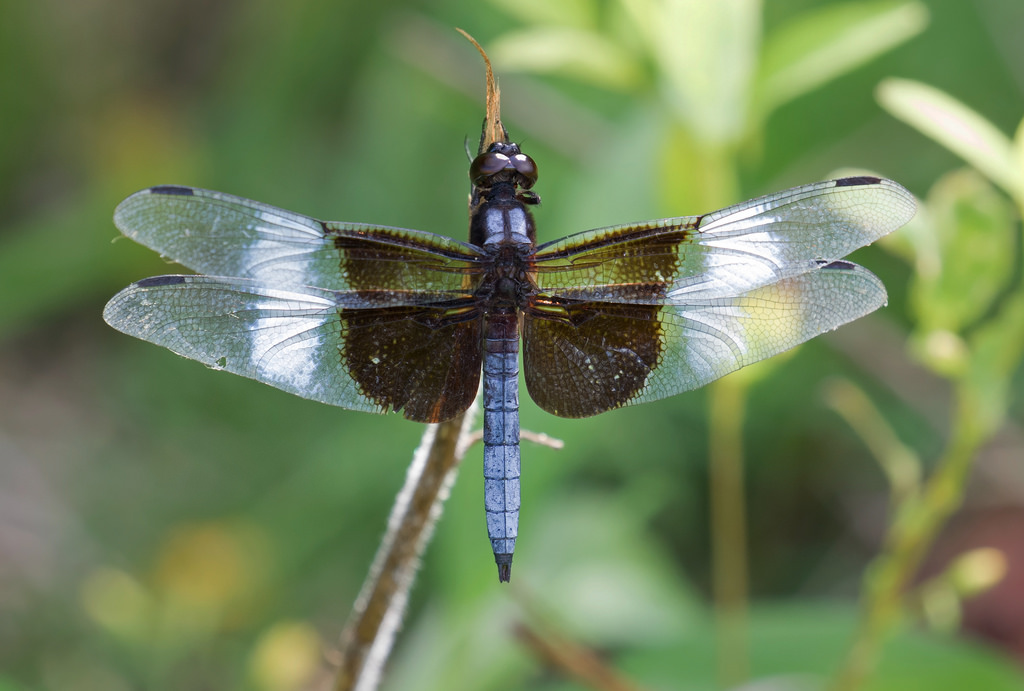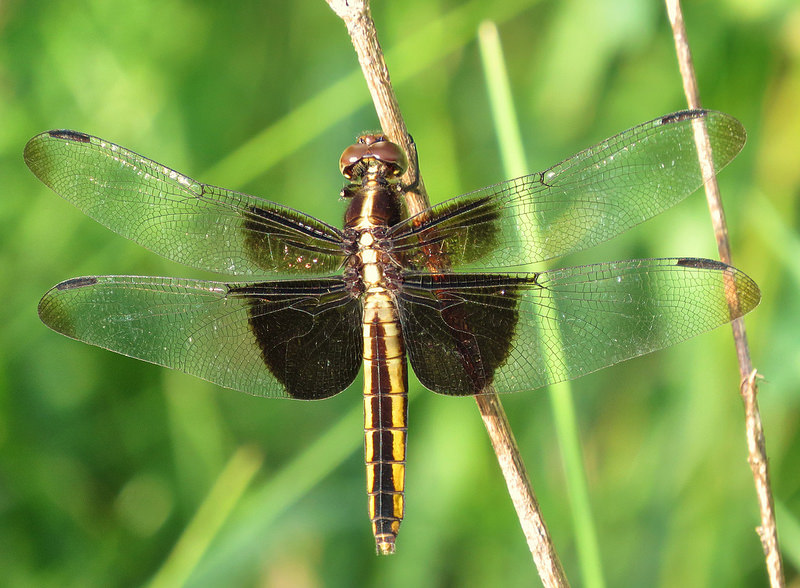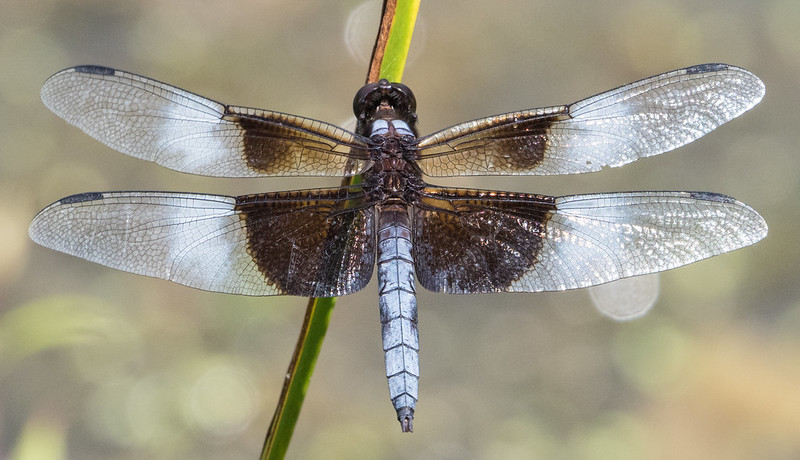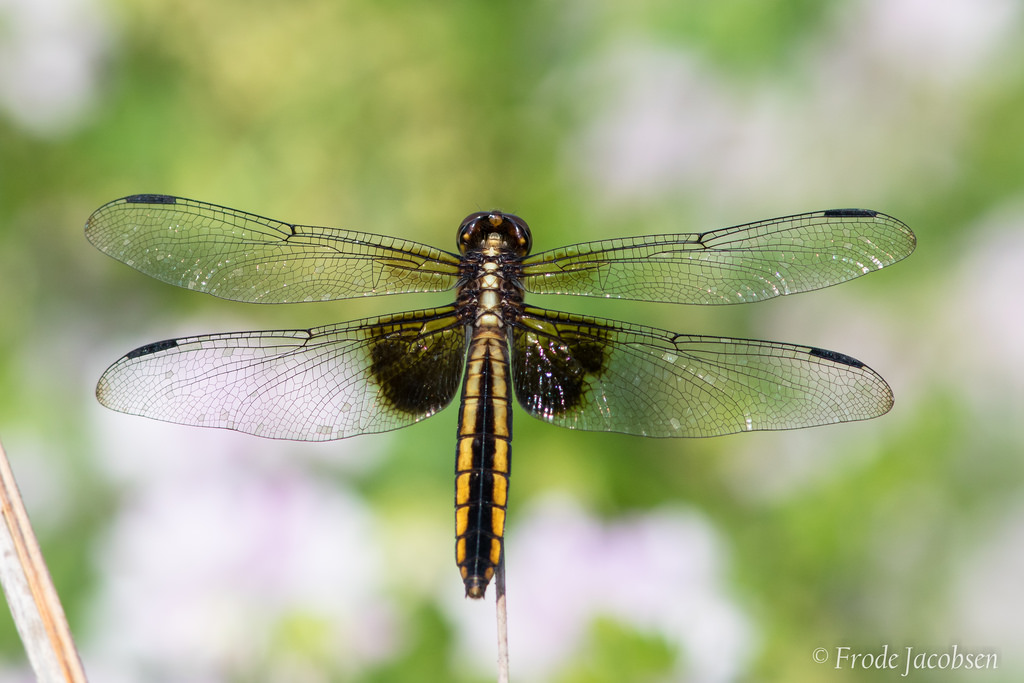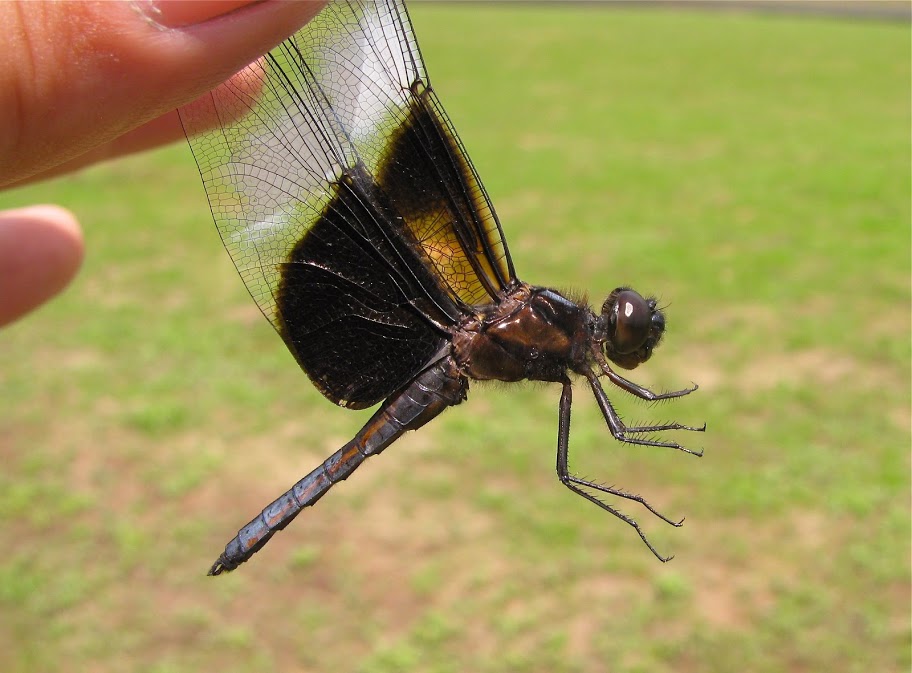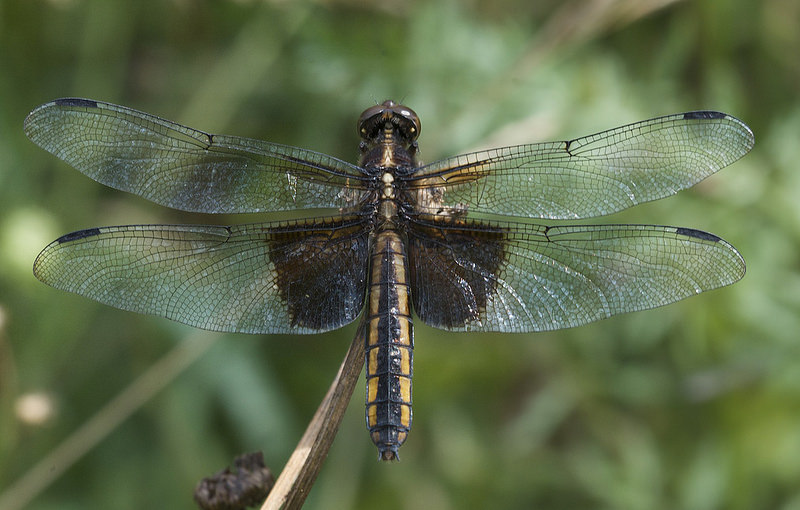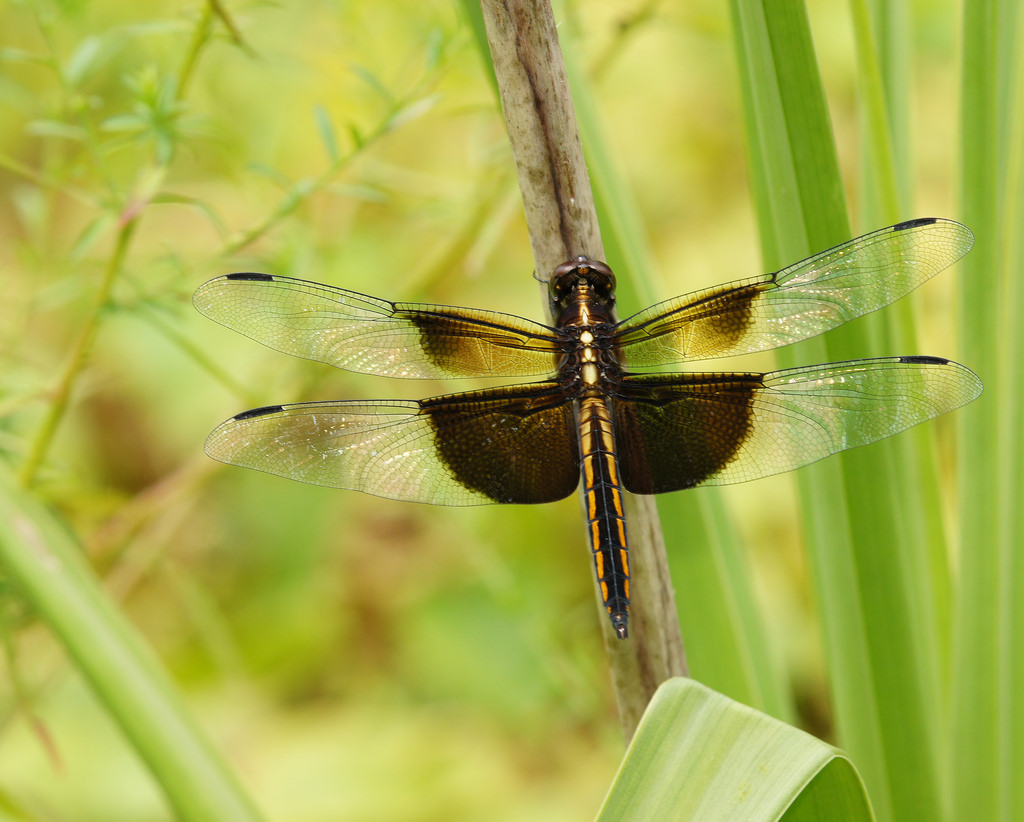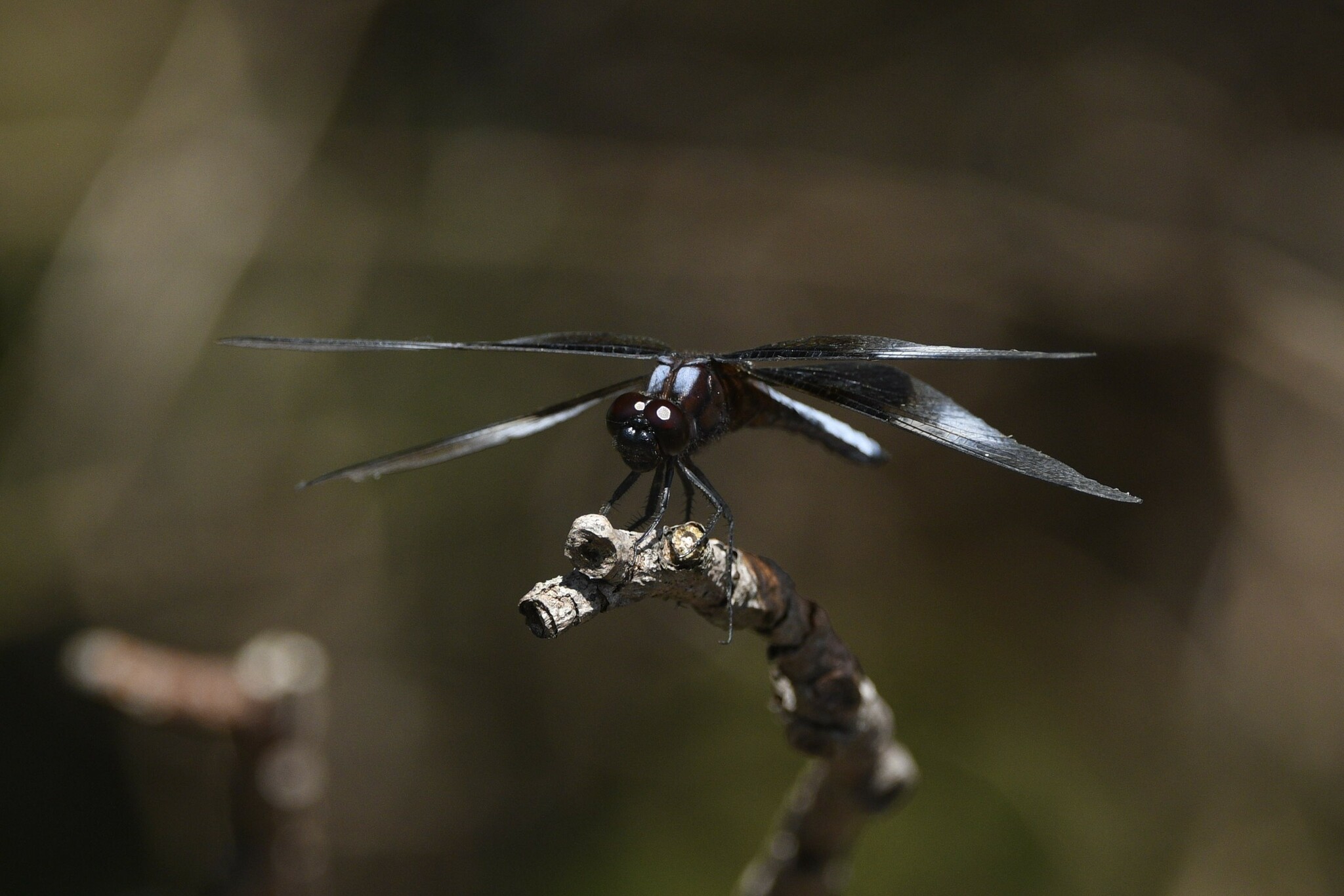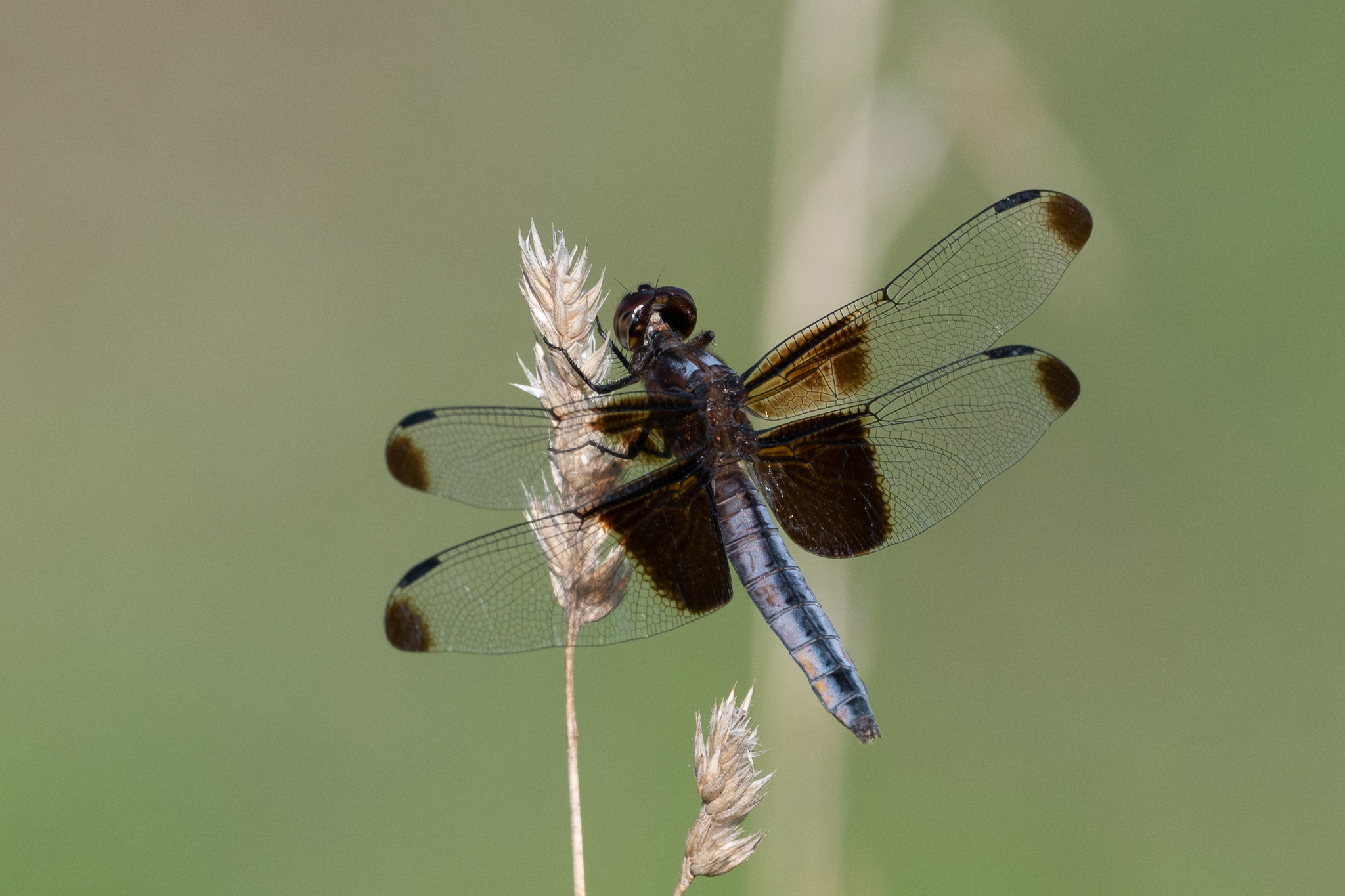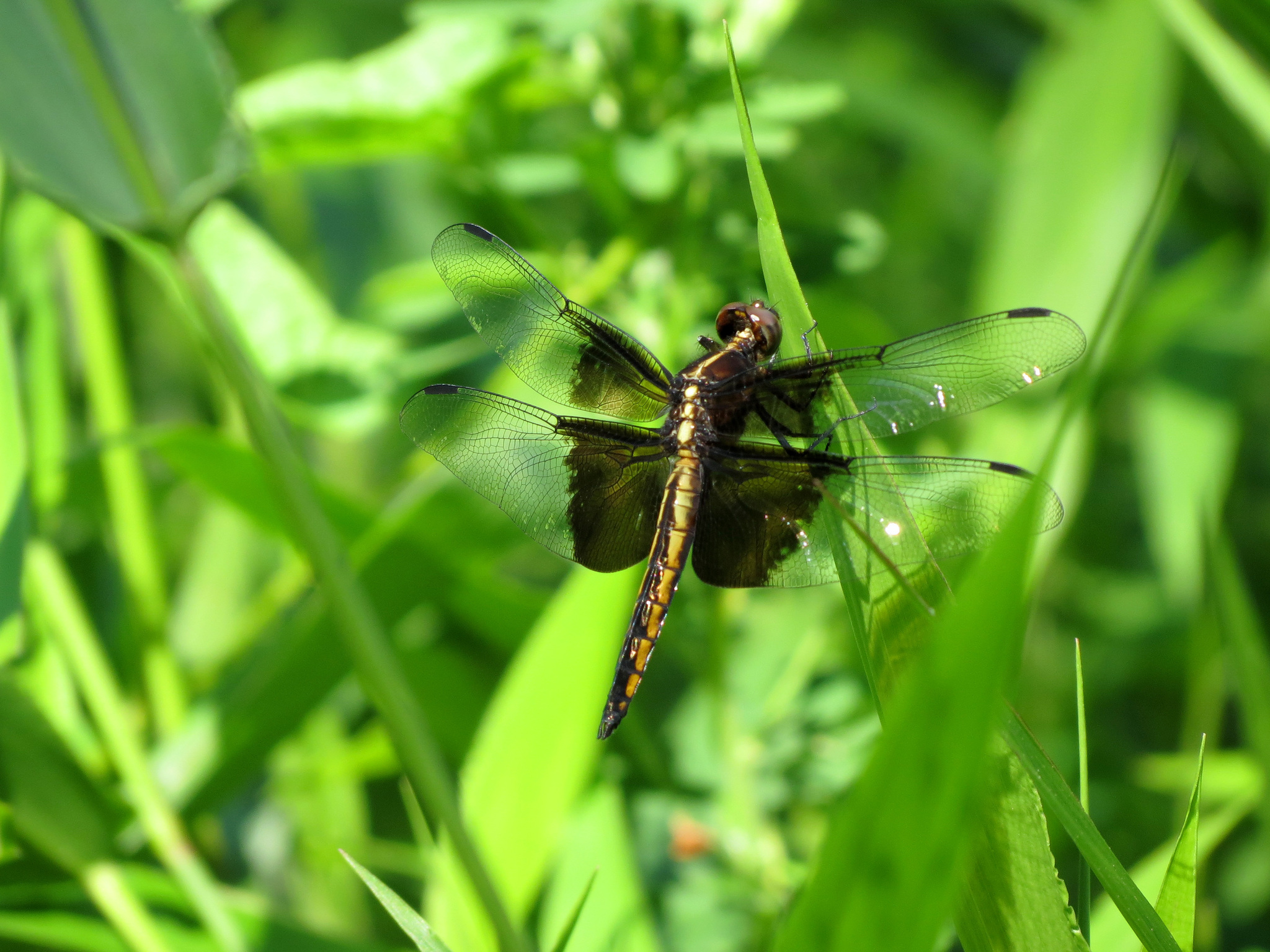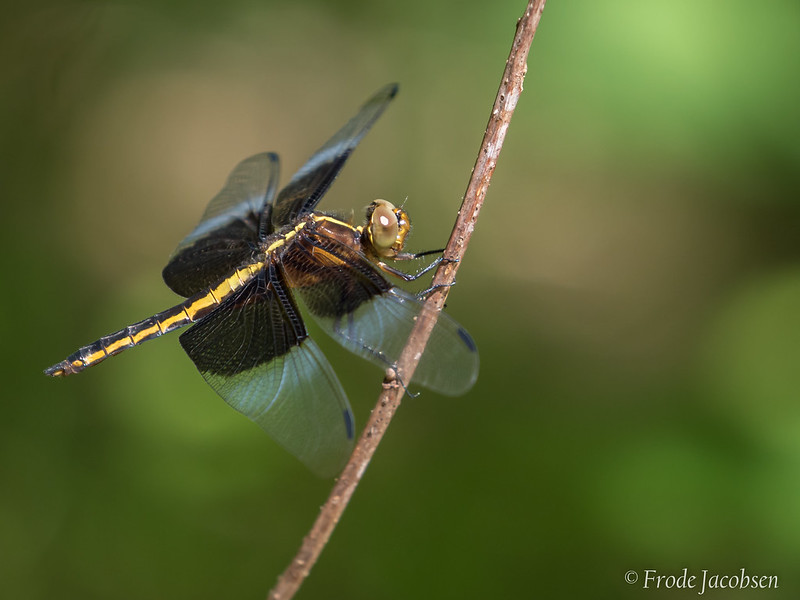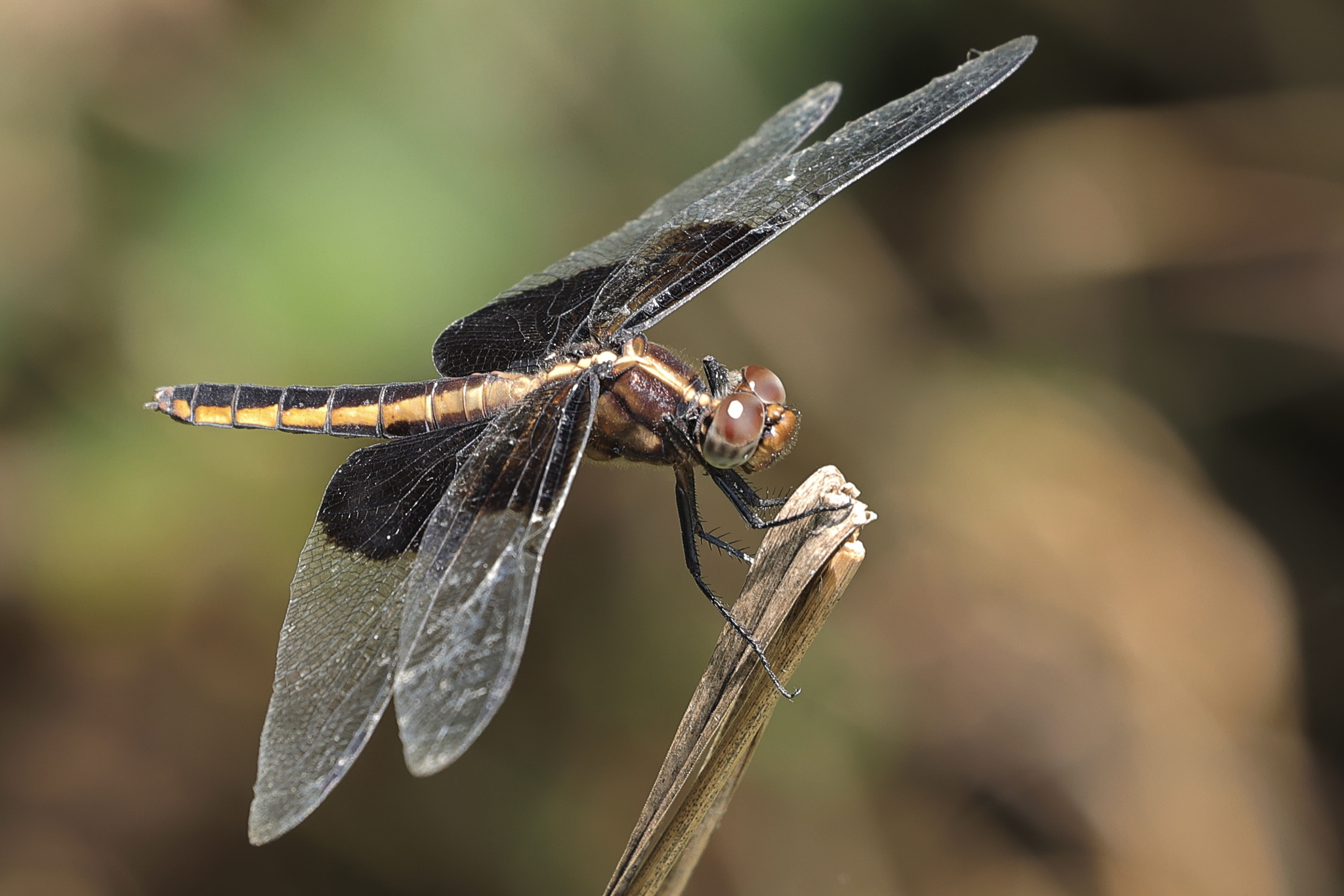Map Snapshot

























1,785 Records
Status
The distinctive Widow Skimmer (Libellula luctuosa) is a beautiful and common skimmer, found in a large variety of habitats, including ponds and lakes, and stream pools, especially those with a muddy substrate. This dragonfly has been recorded from every county in Maryland, and is considered common by Richard Orr (The Dragonflies and Damselflies of Maryland and the District of Columbia).
Seasonality Snapshot
Source: Wikipedia
| Widow skimmer | |
|---|---|

| |
| Male | |

| |
| adult female | |
| Scientific classification | |
| Domain: | Eukaryota |
| Kingdom: | Animalia |
| Phylum: | Arthropoda |
| Class: | Insecta |
| Order: | Odonata |
| Infraorder: | Anisoptera |
| Family: | Libellulidae |
| Genus: | Libellula |
| Species: | L. luctuosa
|
| Binomial name | |
| Libellula luctuosa Burmeister, 1839
| |
The widow skimmer (Libellula luctuosa) is one of the group of dragonflies known as king skimmers. The nymphs live in the water, molting and growing until they are ready to emerge from the water and then molting a final time to reveal their wings.
Anatomy and morphology
[edit]Widow skimmers have large bulky bodies, with large heads. Adults have a steely blue body area but juveniles are yellow with brown stripes.[2] Eyes are also large and close together meeting in the middle of the head.[3] They have three pairs of legs. Legs are black in color. They have two pairs of wings: forewings and hindwings. Wings of both sexes are marked with prominent black basal bands. They keep their wings extended over their bodies. Adult males develop broad white spots at midwing as they mature. The abdomen measures 24–32 mm.[4] They also have a slight white hue on their abdomen and thorax.
Distribution
[edit]This species can be found commonly across the United States (except in the higher Rocky Mountains areas) and in southern Ontario and Quebec.[5]
Habitat
[edit]This species is found commonly in muddy substrates, or still bodies of waters such as ponds, lakes, streams, and creeks.[3][6]
Behavior
[edit]They are predators that prey on other insects such as mosquitoes.[3][7] They catch their prey using their legs and use their fangs to bring prey into their mouth.[3][7]
The process of reproduction is known as "in tandem." Position themselves to form a wheel or heart shape before sperm is transferred.[3][7]
-
Male at Lake Ann, Michigan
-
Female at Schulenberg Prairie
-
Male caught by an introduced Chinese mantis (Tenodera sinensis) in Warrenville, Illinois
-
Mating wheel: female is below male. Herrick Lake Forest Preserve
References
[edit]- ^ Paulson, D.R. (2017). "Libellula luctuosa". IUCN Red List of Threatened Species. 2017: e.T165064A65829657. doi:10.2305/IUCN.UK.2017-3.RLTS.T165064A65829657.en. Retrieved 25 August 2023.
- ^ Dunkle, S.W. 2000. Dragonflies through Binoculars, Toronto:Oxford University press.
- ^ a b c d e "Common Dragonflies and Damselflies of Maryland". dnr2.maryland.gov. Retrieved 2017-03-29.
- ^ "OdonataCentral". www.odonatacentral.org. Retrieved 2017-03-29.
- ^ Mead, Kurt. 2009. Dragonflies of the North Woods, Duluth:Kollath+Stensaas.
- ^ "Maryland Biodiversity Project - Widow Skimmer (Libellula luctuosa)". www.marylandbiodiversity.com. Retrieved 2017-03-29.
- ^ a b c "dragonfly | insect". Encyclopedia Britannica. Retrieved 2017-03-29.
External links
[edit]- University of Puget Sound
- University of Wisconsin
- Citizen science observations for Widow skimmer at iNaturalist
